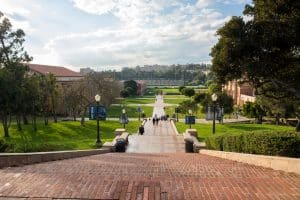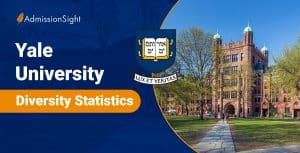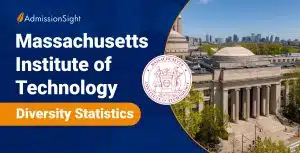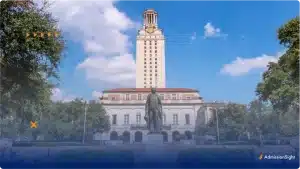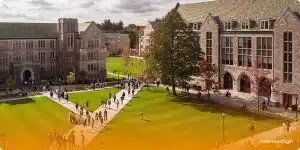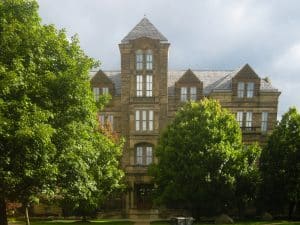When was UCLA Founded?
When was UCLA founded?UCLA was officially established as the Southern Branch of the University of California in 1919, making it the second-oldest campus within the ten-campus University of California system.
In March 1881, the California State Legislature approved the creation of a southern branch of the California State Normal School (now San José State University) in downtown Los Angeles. State Senator Reginaldo Francisco del Valle initiated this, aiming to provide enough qualified teachers for the region’s growing population. The Los Angeles branch opened its doors on August 29, 1882, with classes commencing on September 9.
The location included a demonstration school where aspiring teachers could practice their skills with real students. This primary school later became what is known today as the UCLA Lab School. In 1887, the Los Angeles State Normal School was founded at the branch, and it became an independent institution that year, breaking away from the main campus. As a result, it came under the administration of its own board of trustees and changed its name to Los Angeles State Normal School.
In October 1912, the trustees planned to sell the property, which was then purchased by the city of Los Angeles for constructing a public library. This site eventually housed the Central Library, part of the Los Angeles Public Library system.
The educational institution moved to a new campus in East Hollywood on Vermont Avenue in 1914, where Los Angeles City College now stands. Edward Augustus Dickson, the sole regent representing the Southland at the time, and Ernest Carroll Moore, the Normal School’s Director, lobbied the State Legislature in 1917 to transform the school into the second University of California campus, after UC Berkeley.
The idea of a southern school was met with staunch resistance from UC Berkeley alumni, Northern California state legislators, and the then-president of the University of California, Benjamin Ide Wheeler. In contrast, David Prescott Barrows, who became the President of the University of California in 1919, did not share Wheeler’s opposition.
Ultimately, UCLA was founded on May 23, 1919. The persistence of Southern California residents paid off when Governor William D. Stephens signed Assembly Bill 626 into law. This legislation allowed the University of California’s Southern Branch to take over the Los Angeles Normal School’s land and buildings, converting it into the university’s Southern Branch.
The same law also initiated the Junior College, an expansive undergraduate program. Under Moore’s ongoing supervision, the Southern Branch campus officially began classes on September 15 of that year. It offered two-year undergraduate programs to 250 students in the Junior College and 1,250 students in the Teachers’ College.
What is UCLA Known for?
Since UCLA was founded, and for good reasons, the university has consistently earned a spot near the top of the list of the best-ranked public universities in the United States.
The amazing opportunities that are available to students at UCLA are spread across the university’s many academic programs, extracurricular activities, and vibrant campus life. Students at the University of California, Los Angeles have access to a variety of resources both on and off campus as a result of the university’s enviable location in Southern California and the enormous size of the Bruin alumni network.
The undergraduate curriculum at UCLA consists of more than 90 minors and 125 majors, which are offered through 109 academic departments. Biology, Business Economics, Political Science, Psychology, and Psychobiology are the most common majors chosen by students enrolling in undergraduate programs. Since UCLA’s founding, the university places a significant amount of importance on the research conducted by its students and awards close to one billion dollars in grants and contracts for research each year. Because of its close proximity to Ronald Reagan Medical Center, the campus’s thriving research community is highlighted here.
The performing arts programs offered by UCLA’s School of Theater, Film, and Television (also known as TFT) are frequently ranked well by both U.S. News and The Hollywood Reporter. UCLA is home to an outstanding School of Theater, Film, and Television. Famous people who graduated from the school include actor and neuroscientist Mayim Bialik, Star Trek actor and campaigner George Takei, and actor James Franco, who even spent some time teaching on campus at one point.
Traditions
As we’ve seen, the University of California, Los Angeles (UCLA) has a distinguished name to uphold. However, this does not imply that all you will be doing is working or studying. Since UCLA’s founding, the university had its fair share of traditions, both formal and unusual, that are intended to keep students engaged with the culture of the university.
One of the most significant customs also happens to be one of the most ridiculous. The “Midnight Yell” is an annual tradition that takes place during finals week and brings students together. The students who have assembled do, as the name suggests, let out a cathartic shout at midnight in response to all of the stress produced by examinations.
The UCLA UniCamp is a more constructive effort that is aimed to satisfy the needs of young people living in metropolitan Los Angeles.
Each year, more than 1200 children take part in UniCamp at UCLA, where they are taught to read and play games alongside students from the university. Participants in UniCamp have the opportunity to play on a fully equipped outdoor summer camp while also having the chance to make a genuine difference in the lives of other people.
The annual LA Hacks competition is open to anybody interested in technology. Students are given the opportunity to showcase their expertise at LA Hacks, which is a combination of a technology conference and a skills competition. However, this is being done for a charitable purpose, as the participants are raising money for those who are less fortunate.
Extracurricular Activities
Students at UCLA have access to a wide variety of organizations, in addition to the many traditions that are observed on campus. UCLA was founded with ideals of unity, to make students feel more connected to one another and invested in their college experience. These clubs cover the full spectrum, from those geared toward leisure activities to those focused on personal development.
Any student at the school is welcome to join the Dancesport Club, which is a competitive ballroom dance group. In addition to providing lessons in ballroom dance, it places a strong focus on the spirit of camaraderie among its participants.
While the organization does participate in various tournaments, its primary purpose is to socialize and have a good time with one another.
The Bruin Leaders Project is considered to be one of the more significant clubs at UCLA. Members of the BLP are expected to improve as “students, leaders, and citizens” as a result of their participation in the program. It accomplishes this objective by establishing relationships in the regional political and commercial communities as well as by participating in a variety of community service programs.
Last but not least, if you’re still a kid at heart, you should check out the Disney Club at UCLA. This is a group for those who adore anything and everything associated with the Mouse House. Members spend time together doing things like watching Disney movies, planning vacations to Disney Land, and simply enjoying each other’s company.
Additionally, UCLA is well-known for its thriving startup culture, and the university is home to a plethora of organizations and accelerator programs that assist students in formulating ideas and putting those ideas into action for their own businesses.
Since the year 2000, the combined market value of all startup companies that were created with UCLA’s technology has exceeded $30 billion. AWAK Technologies and Sike Insights are two notable companies that have emerged from the startup ecosystem at UCLA. These companies, which provide AI-powered productivity tools and medical equipment, respectively, are both notable businesses.
What Majors is UCLA Known for?
Students at UCLA have a variety of options to choose from in order to begin and complete their degree program in a manner that is tailored to their specific requirements. Find the right academic focus for you. More than 250 different programs are available to students at UCLA, all of which are instructed by faculty members who are knowledgeable and student-centered. Since UCLA’s founding, students have been equipped with the knowledge, experiences, and opportunities necessary to delve deeper into their areas of interest.
Whether you are an undergraduate student working toward a bachelor’s degree – the university offers 125 undergraduate majors and 90 undergraduate minors – or a graduate student interested in pursuing a master’s or doctoral degree – the university offers 120 graduate and doctoral programs – we are able to assist you in locating the program that is best suited to your needs and interests.
UCLA provides new student workshops for students who are undecided regarding the academic track that they wish to pursue. Students are given guidance during these sessions about the selection of majors, the design of their course schedules, and the comprehension of the criteria for graduation. This allows the students to consider a number of possibilities before settling on one. The following are some of the most common concentrations chosen by students at the University of California, Los Angeles:
Sociology
The organization, dynamics, and repercussions of social life are the topics that are investigated by sociologists. The field of study encompasses a breadth that is equally expansive and varied as the nature of social life itself. Sociologists investigate social interaction and connections, organizations and institutions, communities and complete societies, as well as groups and groups within society. Sociologists immerse themselves in the day-to-day activities of groups, conduct interviews with group members, examine recorded interactions, interpret historical documents, analyze census data, and carry out large-scale surveys.
These are just some of the many methods that sociologists use to investigate social phenomena. The practices and ideas that make up sociology provide profound understandings of the social processes that are responsible for the lives, challenges, and opportunities that exist in modern society. The ability to recognize and comprehend these processes, which C.W. Mills referred to as the “sociological imagination,” is valuable preparation for both individual and professional participation in a dynamic and complicated environment.
Biology
Students have the ability to tailor their own BIOLOGY majors to include coursework from a range of other departments in the biological and physical sciences. Students who are interested in gaining a general understanding of the scientific world as well as those who are planning to pursue jobs in the medical or allied health fields are ideal candidates for this major.
Psychology
At UCLA, psychology is taught as a scientific discipline that employs systematic methods of inquiry to study and explain human and animal behavior, both normal and abnormal, in terms of a variety of underlying variables. These underlying variables include neural, physiological, and cognitive processes; developmental factors and individual differences; as well as social and interpersonal influences and contexts.
The structure of the undergraduate curriculum has been designed to reflect the extensive breadth of psychology in terms of both the range of behavioral phenomena studied and the variety of methods and theoretical approaches employed while allowing students to pursue in greater depth those areas in which they become most interested. This structure was designed to reflect the extensive breadth of psychology in terms of both the range of behavioral phenomena studied and the variety of methods and theoretical approaches employed.
Economics
Students in the Bachelor of Arts in Economics degree are guided through an examination of how society creates and consumes things, as well as an examination of a variety of real-world concerns, including international trade, poverty, taxes, crime, and education.
The coursework provides students with an in-depth education in theoretical and empirical ways to solve problems that occur in the real world, as well as a framework within which to evaluate and understand human behavior. Students that do so graduate with the abilities necessary for successful jobs in a wide variety of industries including government, finance, consulting, and accounting.
Physical Sciences
Physics is a fundamental science that aims to uncover the rules that govern the natural world. It offers comprehension of the material world in which we live. Physicists are interested in all kinds of events, ranging from the investigation of the nature of the universe to the study of the interactions between subatomic particles to the theory of complex molecules. Because it is so comprehensive, physics serves as the basis for all of the other scientific disciplines.
Condensed matter physics, elementary particle physics, plasma physics, nuclear physics, atomic-molecular-optical physics, accelerator physics, biophysics, and astronomy are only a few of the subfields of study that are well-represented in the UCLA Physics and Astronomy department.
Public Affairs
The Bachelor of Arts in Public Affairs program provides students with a comprehensive and interactive learning experience that is grounded on the value of public service. The major integrates critical thinking, social science methods, and experiential learning in order to bridge the gap between theory and practice. It does this by drawing on the extensive resources in Public Policy, Social Welfare, and Urban Planning that are available at UCLA Luskin.
How Hard is it to Get Into UCLA?
There is no student whose odds of admission are exactly the same as another student’s, and despite the fact that UCLA was founded as a public institution of higher education, the bar to get that much-desired acceptance letter is extremely high. Your individual odds of admittance may be different from the normal % that is listed on the school’s website due to the fact that the institution has admissions standards that are on par with those of the Ivy League schools.
Around 11% of UCLA’s applicants are ever accepted into the university. To put it another way, this indicates that UCLA grants admission to 11 out of every 100 students who submit an application.
The acceptance rate at UCLA is extremely tough, and it is only getting more so every year. If you have your heart set on attending UCLA, you’ll need to make sure that your application is flawless in every way if you want to have a shot at getting in.
If your statistics do not meet the criteria that the institution is searching for, your application may be rejected almost instantly. If, on the other hand, you have a well-rounded profile, which means that in addition to having outstanding grades and test scores, you also have strong extracurriculars, you may have a slight advantage and better odds of getting into the school of your choice.
Want to learn more about how UCLA was founded? Or do you need help putting the finishing touches on your college applications? At AdmissionSight, we have over 10 years of experience guiding students through the competitive admissions process.
AdmissionSight can help you put your best foot forward when applying to college this fall. Contact us today for more information on our services.







